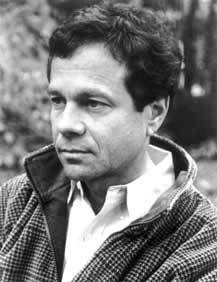 cares about what he or she’s writing about. …For me, the ideal essay is not an assignment, to be dispatched efficiently and intelligently, but an exploration, a questioning, an introspection. I want to see a piece of the essayist. I want to see a mind at work, imagining, spinning, struggling to understand. If the essayist has all the answers, then he isn’t struggling to grasp, and I won’t either.”
cares about what he or she’s writing about. …For me, the ideal essay is not an assignment, to be dispatched efficiently and intelligently, but an exploration, a questioning, an introspection. I want to see a piece of the essayist. I want to see a mind at work, imagining, spinning, struggling to understand. If the essayist has all the answers, then he isn’t struggling to grasp, and I won’t either.” -Alan Lightman in “The Ideal Essay”
 “If kids still write essays in school the way people my age used to, they meet the essay first as pure object. In school, it is (or was) a written paper of a certain length, on an assigned subject, with specified margins and neatness, due on the teacher’s desk at a certain date. From about fourth grade on, I wrote many essays. ‘An essay a week’ was the philosophy lots of grammar school teachers subscribed to back then. Recently I came across an essay of mine I’d saved from the fifth grade. It’s called ‘If I Had Three Wishes.’ My first wish, as I described it, was for lots of fishing equipment, my second was for a canoe in which to go fishing, and my third was for a cabin in the woods somewhere near good fishing. I have more or less gotten those wishes, writing occasional essays about fishing all the while. Even in its present state as childhood artifact, ‘If I Had Three Wishes’ retains its purposeful objectiveness: the three-ring binder paper with regular lines and space at the top for student’s name, teacher’s name, and date; the slow, newly learned script, in blue ballpoint, almost without mistakes; and the circled good grade in the teacher’s hand.”
“If kids still write essays in school the way people my age used to, they meet the essay first as pure object. In school, it is (or was) a written paper of a certain length, on an assigned subject, with specified margins and neatness, due on the teacher’s desk at a certain date. From about fourth grade on, I wrote many essays. ‘An essay a week’ was the philosophy lots of grammar school teachers subscribed to back then. Recently I came across an essay of mine I’d saved from the fifth grade. It’s called ‘If I Had Three Wishes.’ My first wish, as I described it, was for lots of fishing equipment, my second was for a canoe in which to go fishing, and my third was for a cabin in the woods somewhere near good fishing. I have more or less gotten those wishes, writing occasional essays about fishing all the while. Even in its present state as childhood artifact, ‘If I Had Three Wishes’ retains its purposeful objectiveness: the three-ring binder paper with regular lines and space at the top for student’s name, teacher’s name, and date; the slow, newly learned script, in blue ballpoint, almost without mistakes; and the circled good grade in the teacher’s hand.”
-Ian Frazier in “The Essay as Object”
Frazier speaks of an essay that most high-school students know all to well, the “standard” essay mentioned earlier in the text. This essay is not the recorded process of finding the answer to a question, as many have been taught to believe, but is simply the answer. It is an “object,” manicured to follow perfectly the classroom’s structured guidelines for an essay. Being so structured, it is often left being flat and unimaginative.
Lightman’s previous quote shows how ridiculous this notion for an essay truly is. The essay should be about the writer’s journey of answering a question; whether the question ever ends up answered or not. Through that journey, things more meaningful than answers can emerge; things such as introspect and self-discovery.
I liked that these two quotations were next to each other in the reading. They seem to be in stark contrast to one another. But, having read and agreed with Lightman’s quotation before reading Frazier’s, their contrast shows a deeper purpose. I believe that Frazier agrees with Lightman on what an essay should be. Of course, his fifth-grade self may not have been capable of writing the type of essay that Lightman describes. But, I think that looking back, Frazier realizes that the good grade that his paper receives is ironic.
How could the grading guidelines Frazier so meticulously followed before be applied to Lightman’s preferred type of essay? They can’t and they shouldn’t be. How could the situation ‘If I Had Three Wishes’ honestly be answered in three paragraphs? It can’t be and it shouldn’t be. Penmanship and margins do not convey passion and articulate thought. The essay that Lightman speaks of is one entirely different than we are used to. It is time to adapt. It is time to weave in and out of arguments, to struggle, to doubt, to accept that sometimes questions will not be answered.
